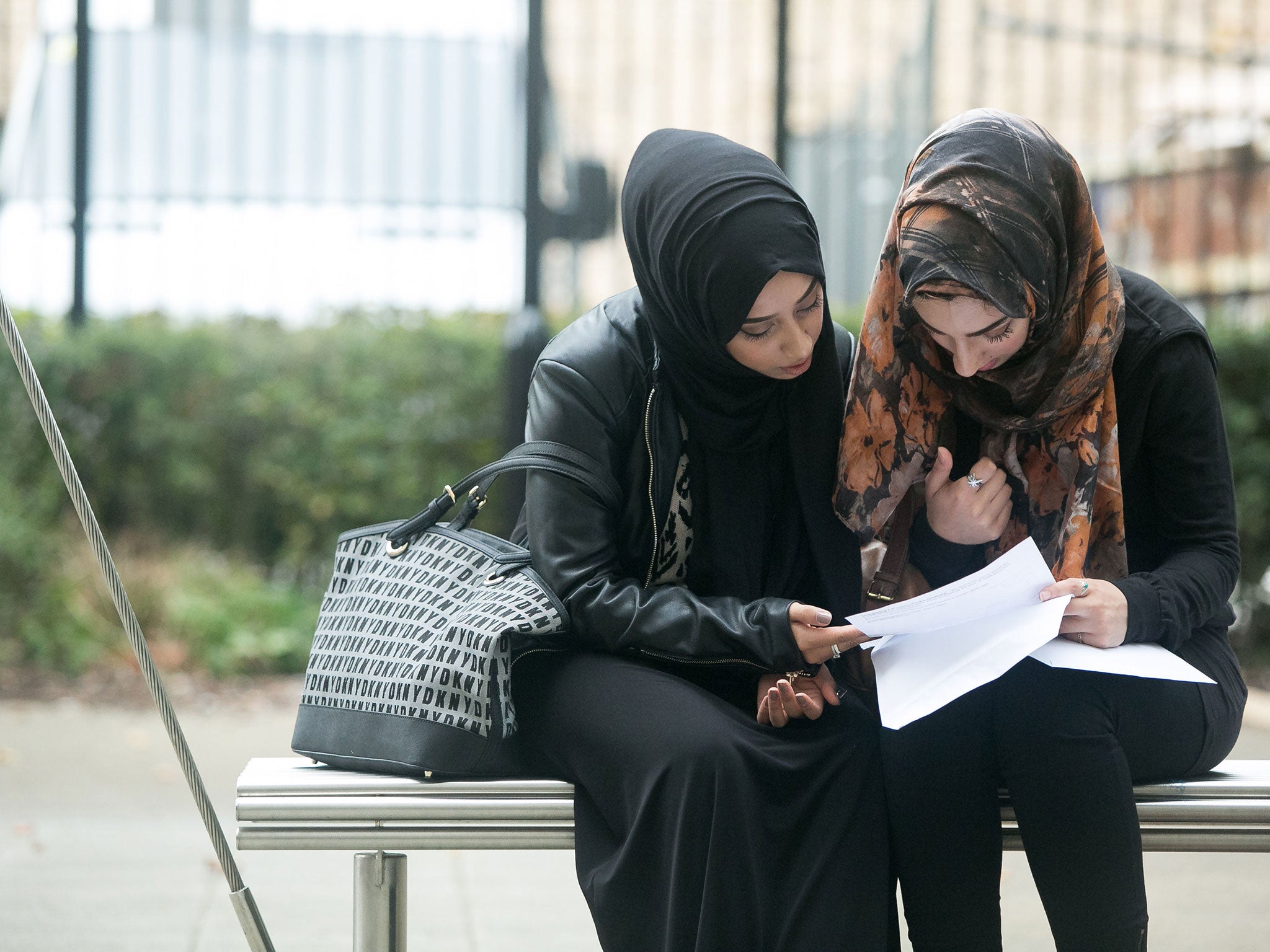Clearing 2015: First hours produce 27% rise in students sealing university places
Around 9,300 people found places on degree courses in first seven hours

Your support helps us to tell the story
From reproductive rights to climate change to Big Tech, The Independent is on the ground when the story is developing. Whether it's investigating the financials of Elon Musk's pro-Trump PAC or producing our latest documentary, 'The A Word', which shines a light on the American women fighting for reproductive rights, we know how important it is to parse out the facts from the messaging.
At such a critical moment in US history, we need reporters on the ground. Your donation allows us to keep sending journalists to speak to both sides of the story.
The Independent is trusted by Americans across the entire political spectrum. And unlike many other quality news outlets, we choose not to lock Americans out of our reporting and analysis with paywalls. We believe quality journalism should be available to everyone, paid for by those who can afford it.
Your support makes all the difference.Record numbers of students secured university places through the first few hours of clearing as candidates rushed for places before student loans are scrapped, official figures have shown.
Around 9,300 people found places on degree courses in the first seven hours of clearing, the system which matches students with vacancies on degree courses, when applications opened on Thurday morning.
That was a rise of 27 per cent rise on the 7,280 placed in the same period last year, and a 151 per cent jump since 2011 when just 3,690 were placed, according to figures from the university admissions service Ucas.
The highest-ever number of students who achieved better than expected results also “traded up” to take places at some of the UK’s most prestigious universities.
In the first 24 hours after A-level results were published, 390 students rejected their existing offers and switched to take places on more high-ranking courses, a rise of 22 per cent on the previous year when 320 “traded up” and a huge increase from just 60 students in 2011.
The rush for places comes in the first year since the Government lifted the cap on university places in England, so that universities can recruit as many students as they wish.
The Government’s decision to scrap maintenance grants from September 2016 is predicted to persuade many youngsters to abandon their plans for a gap year and start their degree next month in order to save up to £13,000 in student debt.
Business and administrative studies was the most popular type of course with almost 50,000 students placed so far, up 7 per cent on 2014, followed by creative arts and design with 46,410, an increase of 3 per cent. This summer’s A-level students have been predicted to set a new record for the number of places awarded through the post-A-level results clearing system, beating last year’s high of 61,130 places.
However, a spokesman for Ucas said the rise did not necessarily mean that a new clearing record would eventually be set but added that “faster and more efficient” decision making had produced an increase in placements in the first 24 hours.
The University of Greenwich was among those to experience a rise in demand, with some students trading up. A spokesman said: “For example, a student with 370 points, equivalent to ABB, has asked to be released from another university and has now been offered a place at Greenwich for LLB law.”
Keele University’s vice-chancellor, Professor Trevor McMillan, also said that some students were “using the adjustment process to come to Keele if their results are better than expected”.
Textbooks for free... But read them!
More than 15,000 students at a London university are to receive all their textbooks for free, under a new scheme to attract cash-strapped applicants that will also let academics monitor how much time they spend with the books.
It is the first time in the UK that an entire student population have been given all their textbooks for free, as e-books.
The scheme will save undergraduates and postgraduates at Middlesex University an average of £450 over the duration of their courses.
But it will also enable the university to monitor how much time students spend using their books. Staff plan to check at what stage students start reading and preparing for pieces of coursework and will analyse the link between use of the books and students’ eventual success in their degrees.
Matthew Lawson, Head of Library and Learner Development at the university, said the scheme will provide “essential learning materials to support studies.”
Join our commenting forum
Join thought-provoking conversations, follow other Independent readers and see their replies
Comments